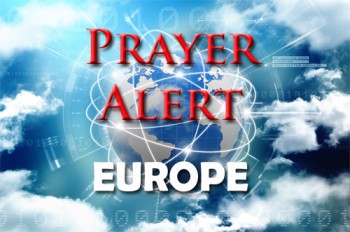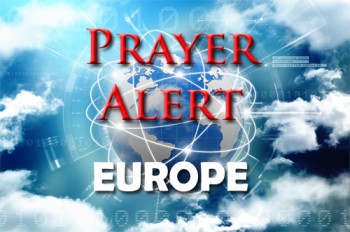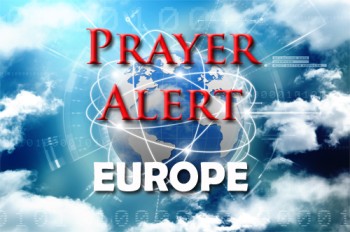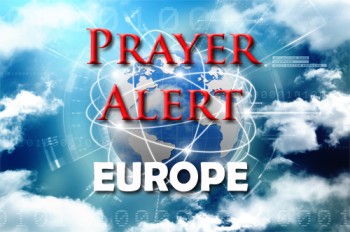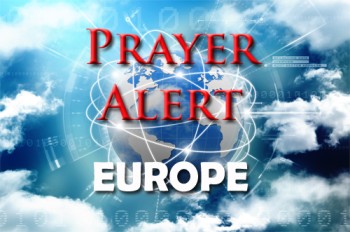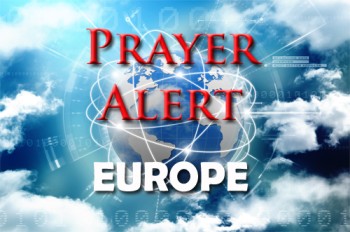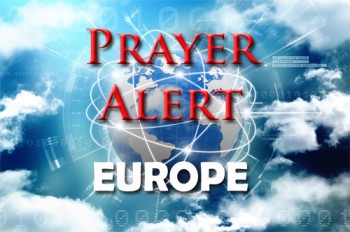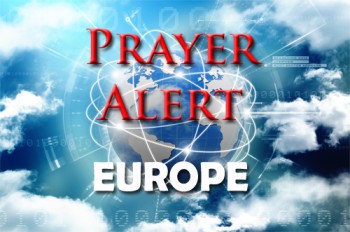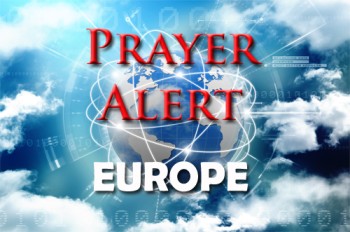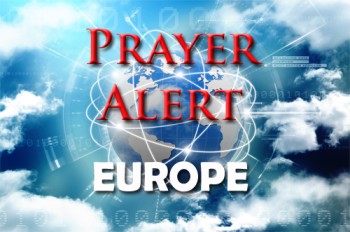Displaying items by tag: Europe
Greenland: Trump drops tariffs threat after meeting Rutte
Tensions between the USA and Europe eased after Donald Trump reversed his threat to impose tariffs on European countries over Greenland and ruled out using force to seize the territory. Speaking in Davos, Trump said a new ‘framework’ had been agreed with NATO secretary-general Mark Rutte, focussing on Arctic security, minerals, and defence cooperation. While details remain vague, the move paused a looming trade dispute that had shaken transatlantic relations and raised fears about NATO’s future. Denmark welcomed the de-escalation but reaffirmed that Greenland’s sovereignty is non-negotiable. European leaders cautiously praised the shift, seeing it as a step away from confrontation. Analysts, however, do not believe that trust can be fully restored, warning that relations may stay fragile, with trade and security tensions ready to resurface.
Spain: at least forty dead after high-speed train crash
Spain has entered a period of deep national grief following its deadliest rail disaster in more than a decade. A high-speed collision near Adamuz in southern Andalusia claimed at least 41 lives, with fears that the toll could still rise as recovery work continues. Two trains derailed on 18 January after one strayed into the path of another, and investigators are carefully examining the scene, focusing on a carriage believed to have derailed first. The transport minister said that experts were extremely surprised because it happened on a flat stretch of track which had been renovated in May. Mechanical failure is being considered; sabotage, human error, and excessive speed have been ruled out. Local residents were among the first to help the injured, facing scenes of profound trauma. As families wait anxiously for news and many remain in hospital, the country is observing days of mourning, united in sorrow and still searching for answers.
Ukraine: Russian air strikes cause widespread energy loss
As Ukraine is enduring one of the harshest winters of the war, Russian strikes continue to target the country’s energy infrastructure. In Kyiv alone, around four thousand buildings remain without heating and nearly 60% of the city has lost electricity following recent attacks. Across the country, communities face similar disruptions amid freezing temperatures. Volodymyr Zelensky has declared a state of emergency in the energy sector, with schools closed, public lighting reduced, and hundreds of thousands leaving the capital. He has also criticised the mayor of Kyiv, former boxer Vitali Klitschko, for not doing enough to restore power quickly. Hospitals have reported more than a thousand cases of frostbite and hypothermia in recent weeks. Emergency warming tents now dot the city, offering shelter and food. Germany has described Russian winter attacks on energy as war crimes, and the International Criminal Court has issued arrest warrants for two top military officials said to be responsible for them.
Poland: ‘only Trump can restrain Russia’
On a visit to the UK, Karol Nawrocki, Poland’s president, has warned that Europe faces an increasingly dangerous security environment and believes only Donald Trump can restrain Russia’s ambitions. He said that Russia could not be trusted and was actively testing both Poland’s defences and Europe’s unity. He pointed to large-scale drone incursions from Belarus and Ukraine as evidence of a sustained hybrid conflict, involving military pressure and disinformation. While expressing concern about tensions within the Western alliance, he argued that Donald Trump remained Europe’s essential security guarantor and deserved support for efforts to end the war in Ukraine. Nawrocki praised Britain’s military assistance and criticised European leaders for neglecting defence readiness. With Poland investing heavily in security, he urged greater focus on resilience, cooperation and unity in what he described as dangerous and uncertain times.
Greenland: talks in Washington and Denmark, US senators seek to block Trump’s plans
US senators have introduced bipartisan legislation aimed at safeguarding NATO unity amid rising tensions over Greenland. The bill would prevent US government funds from being used to seize, occupy or otherwise assert control over the territory of any NATO member state. This is a response to repeated statements by Donald Trump suggesting that Greenland, a self-governing territory of Denmark, should come under US control, even by force. Many believe that such rhetoric threatens NATO’s core principle of collective defence and undermines trust among allies. European leaders, particularly in Denmark and Greenland, have firmly rejected any suggestion of US control, emphasising their commitment to NATO, Danish sovereignty and the EU. On 16 January, with the territory’s strategic location and natural resources drawing global attention, Marco Rubio is due to meet the foreign ministers of Denmark and Greenland in Washington, and a bipartisan group of US lawmakers will be in Denmark for talks. Breaking news: some European troops have gone to Greenland after inconclusive talks with the USA. See
Ukraine: UK and France agree to send troops if a peace deal is reached
The United Kingdom and France have agreed in principle to deploy troops in Ukraine if a peace deal with Russia is reached, marking a significant step in European security planning. Keir Starmer said the declaration of intent would allow British, French and partner forces to operate across Ukraine to deter future aggression, while Emmanuel Macron suggested thousands of troops could be involved. Allies meeting in Paris broadly agreed on the need for robust security guarantees, with the USA expected to lead monitoring of any ceasefire. However, major questions remain unresolved, particularly over territory occupied by Russia and the precise terms of enforcement. Moscow has warned foreign troops would be legitimate targets and has so far remained silent on the proposals. Volodymyr Zelensky, who said on 1 January that a peace deal was ‘90% ready’, welcomed the talks as progress but stressed that guarantees would only matter if they truly ended the war, as pressure grows on all sides to compromise.
Greenland: Trump’s ambitions expose serious weakness in NATO
Debate over Donald Trump’s apparent interest in taking over Greenland from Denmark has exposed a serious weakness within NATO. While diplomacy may yet prevail, the situation highlights how dependent European allies have become on American military power. Decades of reliance on the USA have left the alliance vulnerable if Washington ever withdraws support or acts independently. The UK illustrates this clearly. Despite presenting itself as Europe’s strongest military force, Britain relies heavily on the United States, particularly through its nuclear partnership and key battlefield 'enablers' such as satellite intelligence, electronic warfare protection and logistics. Successive governments have underinvested in these costly capabilities, assuming American backing would always be guaranteed. This dependence extends across NATO. Many members operate US-built equipment and plan defence around American leadership. Even as allies try to do more, the alliance still assumes a dominant US role. The Greenland debate sharpens a question NATO already faces: what if America is no longer fully on board?
Switzerland: shock and heartache after 1 January bar fire
Four days after the New Year’s Day bar fire that killed at least forty people, the Swiss resort of Crans-Montana remained in shock. In silence, thousands braved the cold to march through the town, stopping near the venue where the tragedy occurred, now hidden behind a white tarp. An improvised memorial of candles and flowers reflected the shared grief of residents and visitors alike. Among those gathered was a mother who had waited nearly three days for confirmation of her son’s fate. She described the anguish of uncertainty before finally learning of his death, and the painful relief of being able to begin mourning. While grateful for a final moment to say goodbye, she expressed anger at the prolonged silence from authorities during those critical days. It has now come out that the bar had not been inspected for at least five years: see
Ukraine claims significant gain as European leaders meet
Ukraine has reported a significant battlefield development, with its armed forces reclaiming control over nearly 90% of the strategically important city of Kupiansk in the Kharkiv region. Commander-in-Chief Oleksandr Syrskyi announced the advance during a meeting with international allies, crediting targeted ‘search-and-strike’ operations and the resilience of his troops. Kupiansk, close to the Russian border, has long been a critical logistical hub and a focal point of intense fighting. Analysts say the Ukrainian gains could ease pressure on nearby frontline areas and disrupt Russian supply routes, though the wider conflict remains volatile, especially as winter conditions worsen. The update shows the fluid and contested nature of the war and the ongoing human and strategic costs of the conflict. Ukraine has also claimed to have destroyed a Russian submarine in the Black Sea: see Meanwhile, in a crucial summit on 18 December, at the time of writing European leaders are deadlocked on the thorny issue of whether to use frozen Russian funds to help Ukraine. See
France seeks delay to EU-Mercosur trade agreement
France is seeking to delay a vote to ratify the long-negotiated EU–Mercosur trade agreement, arguing it threatens farmers and risks inflaming domestic unrest. The deal with Argentina, Brazil, Paraguay, and Uruguay was concluded a year ago after talks dating back to 1999. Supporters say it would open South American markets to European cars, machinery, and wines at a time of US tariffs and rising Chinese competition. Opponents, led by France, warn that cheaper agricultural imports produced under looser standards could undercut European farmers and encourage environmental harm. Protests are intensifying: as many as 10,000 farmers are expected to descend on Brussels as leaders meet. Although the European Commission has proposed safeguards, Paris calls them insufficient and is urging a postponement to secure stronger protections. The timing of the vote coincides with efforts by Sebastien Lecornu’s minority government to secure parliamentary approval for a budget, including suspending Emmanuel Macron’s controversial pension reform, before the end of 2025. Ursula von der Leyen is due to travel to Brazil on Monday next week to sign the agreement and create the world’s largest free-trade area.
